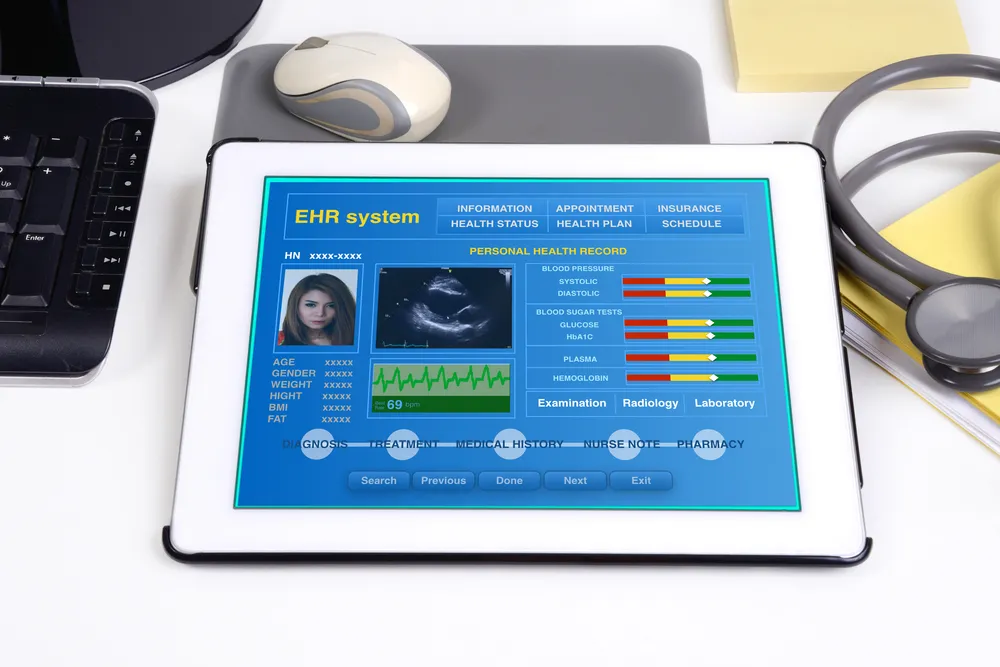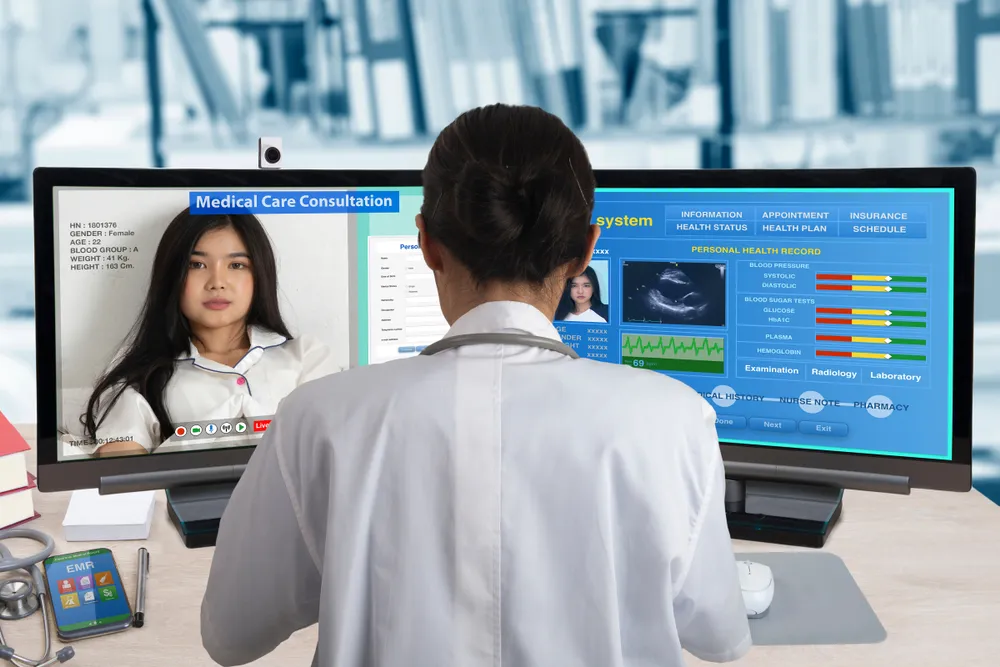Operating a family medicine practice is all about doing multiple tasks—from managing patient records to coordinating care for diverse families—at the same time. Just imagine a dedicated family health practitioner who...
In modern healthcare, efficient time management is crucial for success and the best healthcare. One of the most significant technological advancements in recent years has been the introduction of Electronic Health Record (EHR) systems. These systems have revolutionized how medical practices manage daily operations, especially when scheduling appointments. Proper EHR scheduling elevates patient care and streamlines the practice's workflow.
Efficient scheduling serves as the backbone of healthcare operations. Every aspect of healthcare delivery relies on a well-structured scheduling system, from appointment bookings to resource allocation.

Understanding EHR Scheduling
EHR scheduling goes beyond appointment setting; it features a comprehensive approach to coordinating various healthcare delivery elements. From maximizing resource utilization to enhancing patient accessibility, EHR scheduling can be the backbone for efficient practice operations.
Proper EHR scheduling can help elevate patient care and streamline a practice's workflow. With EHRs, appointment scheduling can be conducted in real-time, allowing medical staff to access patient records, set up follow-up appointments, and even send automated patient reminders. This saves time and ensures patients receive the health care they need promptly and efficiently.
Moreover, EHR scheduling enables medical staff to manage their time and resources better. With real-time scheduling, medical professionals can reduce wait times, decrease patient no-shows, and avoid overbooking. This ultimately enhances the overall patient experience, which is critical for building a successful medical practice.

Common Challenges and Solutions in EHR Scheduling
Every practice faces several challenges with time management, but EHR scheduling is the solution to most of these time management-related problems. Here are some common problems encountered and how EHR scheduling is the solution.
● Overcoming Technical Difficulties
Investing in training and support can significantly mitigate the technical hurdles associated with EHR systems.
● Managing Patient No-Shows and Cancellations
By implementing reminder systems, accommodating flexible scheduling, and analyzing patterns, practices can minimize the impact of no-shows and cancellations.
● Utilizing EHR Data for Improved Scheduling
Data analytics enable practices to adapt scheduling strategies based on patient flow insights, leading to better resource allocation and patient satisfaction.
● Enhancing Patient Access and Experience
EHR scheduling can enhance patient access and experience through online scheduling, reducing wait times and streamlining the check-in process.
● Optimizing Staff Scheduling
Efficient staff scheduling is critical to the effective management of healthcare operations. EHR scheduling systems can help practices ensure optimal staff coverage and minimize overtime costs.
● Incorporating Telemedicine into EHR Scheduling
Telemedicine appointments can further enhance patient care and convenience while effectively utilizing resources. Incorporating telemedicine appointments into EHR scheduling systems can help practices optimize patient access and reduce costs.
● Ensuring Compliance with Regulatory Requirements
EHR scheduling systems must comply with regulatory requirements such as HIPAA and HITECH. Practices must ensure their EHR scheduling systems comply with these requirements to ensure they don't get penalties for violations and maintain patient trust.
Key Strategies for EHR Scheduling
● Prioritizing Appointments
Strategic appointment prioritization allows for the balancing of urgent needs with routine care. Practices can better manage patient flow by classifying visit types and leveraging EHR capabilities.
● Streamlining Follow-Ups
Effective EHR scheduling also includes seamlessly integrating follow-up appointments, maintaining continuity of care, and ensuring optimal patient health outcomes.
Conclusion
The Practice EHR scheduling is a game-changer in modern healthcare. Streamlining the appointment scheduling process and improving patient care, EHRs help medical professionals manage their time and resources effectively, ultimately leading to better patient and healthcare provider outcomes.
Embracing EHR scheduling is not merely about adopting new technology but enhancing healthcare delivery. By thoughtfully implementing the right strategies, healthcare providers can improve time management and patient care. Efficient EHR scheduling can help practices achieve their goals while providing optimal patient care and experience. Schedule A Free Demo Now!
Topics: Integrated EHR, Healthcare Office Management, Small Practice, EHR Solution, EHR, Technology in Healthcare, Practice Management Software, EHR Scheduling
RECENT POSTS



TOPICS
- EHR Solution (148)
- EHR (85)
- Patient Care (78)
- digital age (78)
- Medical Billing (73)
- Specialty-Specific EHR (71)
- Integrated EHR (59)
- Small Practice (56)
- Technology in Healthcare (56)
- Industry Update (51)
- New Technology (47)
- Medical billing services (46)
- EHR Features (43)
- RCM (43)
- Cloud-based EHR (39)
- Practice EHR News (39)
- Healthcare Office Management (37)
- Kiosk (28)
- HIPAA Security (21)
- ePrescribing (21)
- Telemedicine (15)
- EMR (12)
- Revenue Cycle Management (12)
- Practice Management Software (11)
- Client Favorites (10)
- Practice Automation (10)
- The ONE (10)
- Urgent Care (8)
- MACRA/MIPS (7)
- Patient Portal (7)
- Switching to New EHR (6)
- events (6)
- E-Prescribing (5)
- Product Updates (5)
- TeleVisit (5)
- AI Solutions (4)
- Insider (4)
- Internal Medicine EHR (4)
- MIPS (4)
- Podiatry (4)
- Podiatry EHR (4)
- AI Scribing (3)
- HIPAA (3)
- MIPS Reporting (3)
- Regulatory Updates (3)
- AI scanning (2)
- Billing for Private Practices (2)
- Clearinghouse (2)
- Dermatology EHR (2)
- EHR Scheduling (2)
- Family Medicine EHR (2)
- Foot and Ankle Care (2)
- Foot and Ankle EHR (2)
- Health records 101 (2)
- Integrated Practice Management (2)
- Medical Credentialing (2)
- Medical Practice Management Software (2)
- Orthopedics EHR (2)
- Patient Check-in Kiosk (2)
- Psychiatry EHR (2)
- Quality of Patient Care (2)
- Reporting Under MIPS (2)
- Risk and Liability in Medical Settings (2)
- Telehealth Platform (2)
- Telehealth Platforms (2)
- What Works Clearinghouse (2)
- AI-powered Medical Billing (1)
- Bariatric EHR (1)
- Behavioral Health Practices (1)
- Billing Communication (1)
- Cardiology EHR (1)
- Cash Flow (1)
- Chiropractic EHR (1)
- Data Security (1)
- Dos and Don'ts (1)
- EHR Guides (1)
- EHR KPIs (1)
- EHR Questions to Ask (1)
- EHR for Chiropractors (1)
- EHR for Chronic Illness (1)
- EMR vs EHR Difference (1)
- ENT EHR (1)
- Eligibility Verification in Medical Billing (1)
- Endocrinology EHR (1)
- Family Medicine (1)
- Gastroenterology (1)
- Gastroenterology EHR (1)
- General Surgery EHR (1)
- Geriatrics EHR (1)
- Guides (1)
- Healthcare Compliance Certification (1)
- Healthcare Practice Office Management (1)
- Help Center Videos (1)
- Insurance Reimbursement (1)
- KPI (1)
- Key Performance Indicators (1)
- Lab Processing (1)
- MACRA (1)
- Medical Billing Partner (1)
- Medical Coding Services (1)
- Mobile EHR (1)
- Nephrology EHR (1)
- Neurology EHR (1)
- Pain Management EHR (1)
- Pediatrics EHR (1)
- Physical Therapy EHR (1)
- Practice Cash Flow (1)
- PracticeEHR GO App (1)
- Pulmonology EHR (1)
- Simplify Practice Management (1)
- Staffing in Healthcare (1)
- Switch Medical Billing Providers (1)
- Urgent Care Medical Billing (1)
- Urology EHR (1)
- insurance claim denials (1)







